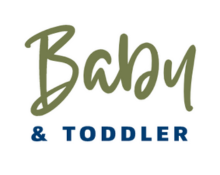
The ideal length of time to breastfeed varies for each individual and depends on various factors, including the preferences and circumstances of the mother and baby. However, leading health organizations such as the World Health Organization (WHO) recommend exclusive breastfeeding for the first six months of a baby’s life, followed by continued breastfeeding alongside the introduction of complementary foods until at least the age of one year.
Here are some key points to consider regarding the duration of breastfeeding:
Exclusive breastfeeding for the first six months: Exclusive breastfeeding means providing only breast milk to your baby without any other food or drink, including water, for the first six months of life. Breast milk is uniquely designed to meet the nutritional needs of infants and provides numerous health benefits.
Continued breastfeeding with complementary foods: After six months, as solid foods are introduced, breastfeeding should continue alongside the introduction of complementary foods. Breast milk still provides important nutrients and immune factors, while complementary foods help meet the increasing nutritional needs of the growing baby.
Benefits of extended breastfeeding: Continuing to breastfeed beyond the first year offers ongoing health benefits for both the mother and baby. Breast milk provides additional nutrition, immune support, and comfort to the child. It can also have long-term health benefits for the mother, such as reduced risk of certain cancers and improved maternal health.
Personal preferences and circumstances: The duration of breastfeeding is a personal decision for each mother and family. Some mothers may choose to breastfeed for a shorter period, while others may continue for an extended period based on personal preferences, cultural practices, and individual circumstances. It’s important to respect and support a mother’s choice regarding the duration of breastfeeding.
Ultimately, the length of time to breastfeed should be determined by the mother’s and baby’s needs, as well as their ability to continue breastfeeding comfortably and happily. It’s recommended to seek guidance from healthcare providers, lactation consultants, or breastfeeding support groups to ensure you receive the appropriate support and information to make informed decisions about breastfeeding duration.
